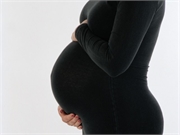- Are You Making This Expensive Thermostat Error This Winter?
- Recognizing the Signs of Hypothyroidism
- 10 Strategies to Overcome Insomnia
- Could Artificial Sweeteners Be Aging the Brain Faster?
- Techniques for Soothing Your Nervous System
- Does the Water in Your House Smell Funny? Here’s Why
- Can a Daily Dose of Apple Cider Vinegar Actually Aid Weight Loss?
- 6 Health Beverages That Can Actually Spike Your Blood Sugar
- Treatment Options for Social Anxiety Disorder
- Understanding the Connection Between Anxiety and Depression
For Many Pregnant Women, COVID-19 Has Prolonged Effect

COVID-19 symptoms can last a long time in pregnant women, researchers say.
The new study included 594 pregnant women (average age 31) across the United States who tested positive for the new coronavirus but were not hospitalized. Nearly one-third were health care workers.
On average, the women were about 24 weeks’ pregnant when they joined the study.
The most common early symptoms were cough (20%), sore throat (16%), body aches (12%) and fever (12%). By comparison, fever occurs in 43% of hospital patients who are not pregnant.
For 6%, loss of taste or smell was the first symptom. Other symptoms included shortness of breath, runny nose, sneezing, nausea, sore throat, vomiting, diarrhea or dizziness.
While six out of 10 women had no symptoms after four weeks, symptoms lasted eight or more weeks for 25%, the study found.
Thirty-seven days was the median time for symptoms to resolve, meaning half took longer, half took less time. The findings were published Oct. 7 in the journal Obstetrics & Gynecology.
“COVID-19 symptoms during pregnancy can last a long time, and have a significant impact on health and well-being,” said senior author Dr. Vanessa Jacoby. She is vice chairwoman of research in the department of obstetrics, gynecology and reproductive sciences at the University of California, San Francisco (UCSF).
Jacoby’s team also found that COVID-related symptoms were complicated by overlapping signs of normal pregnancy, including nausea, fatigue and congestion.
The majority of participants had mild disease and were not hospitalized, said first author Dr. Yalda Afshar, assistant professor in the division of maternal fetal medicine, department of obstetrics and gynecology at the University of California, Los Angeles.
Despite the potential risks of COVID-19 for pregnant women and their newborns, large gaps in knowledge about the disease’s course and prognosis remain, Afshar noted in a UCSF news release.
“Our results can help pregnant people and their clinicians better understand what to expect with COVID-19 infection,” Afshar said.
More information
There’s more on COVID-19 and pregnancy at the U.S. Centers for Disease Control and Prevention.
Source: HealthDay
Copyright © 2026 HealthDay. All rights reserved.










